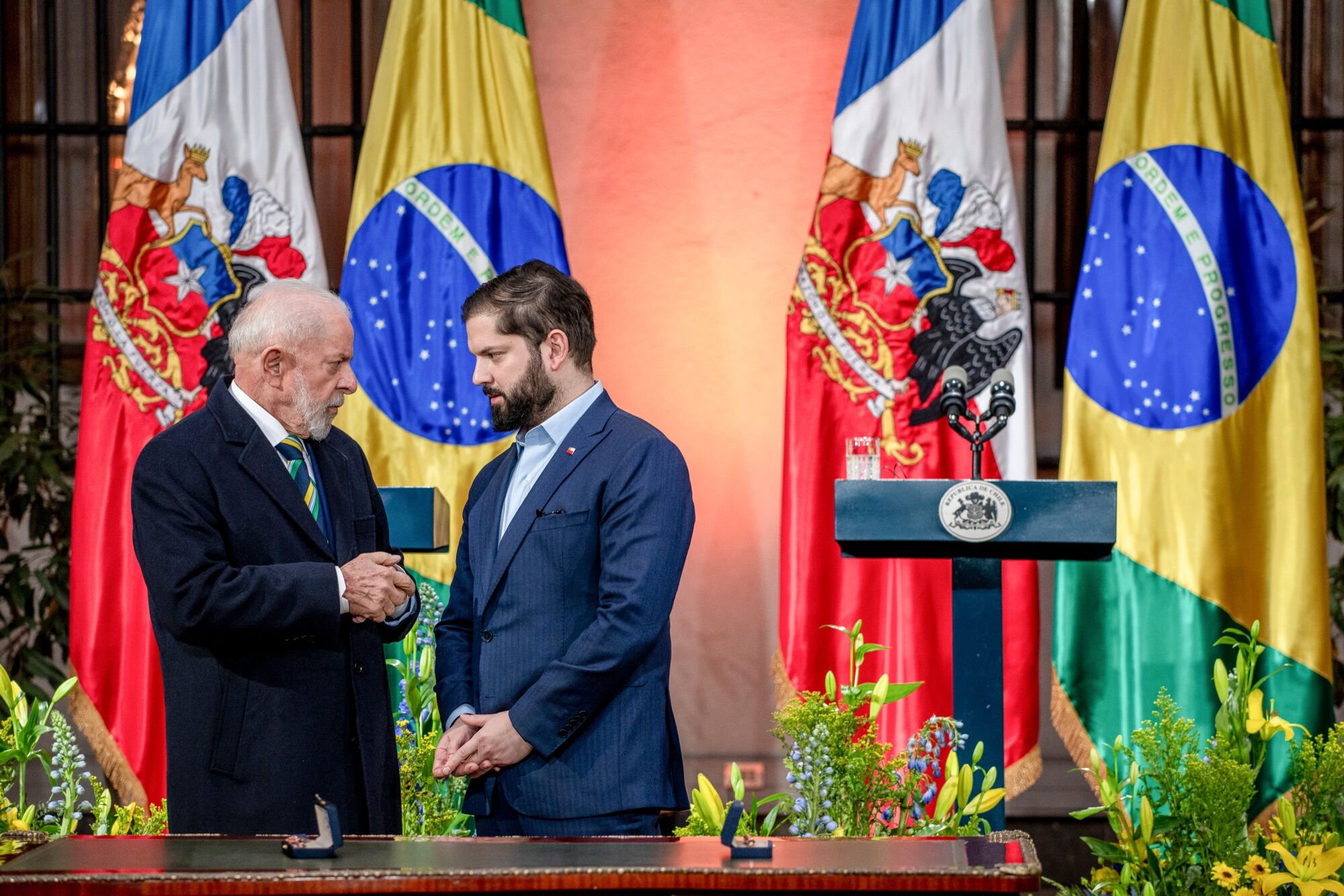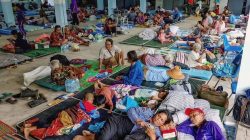Focus on Democracy and Technology at Chile Summit
At a pro-democracy summit held in Chile, leftist leaders from various countries gathered to address pressing global issues. The event, hosted by President Gabriel Boric, aimed to foster multilateral cooperation and tackle challenges such as online disinformation and the misuse of technology. Leaders like Colombia’s Gustavo Petro, Spain’s Pedro Sánchez, and Uruguay’s Yamandú Orsi emphasized the importance of safeguarding democratic values and promoting peace.
Despite the recent tensions involving former U.S. President Donald Trump, who had threatened significant tariffs on Brazil and expressed support for former Brazilian President Jair Bolsonaro, the summit avoided direct criticism of the U.S. leader. The joint statement released after the meeting did not mention Trump, the tariffs, or any political interference. However, when questioned about Trump, Brazil’s President Luiz Inácio Lula da Silva acknowledged the need for strong diplomatic relations between the two nations.
Lula stated that Brazil was not engaged in a tariff war, suggesting that any conflict would arise if Trump did not change his stance. “A tariff war will start when I give my answer to Trump, if he doesn’t change his mind,” he said. This remark highlighted the delicate balance these leaders are trying to maintain amidst rising geopolitical tensions.
Addressing Global Threats
The summit focused on several key issues, including the threat to democracy posed by military force and the need to combat hate speech and disinformation. Boric emphasized that the current era presents unique challenges to democratic values, stating, “Today in many parts of the world, democracy is under threat. That threat cannot just be reduced to military force.”
The gathering also underscored the growing cooperation among nations, mirroring similar efforts in the European Union, which is preparing to engage more closely with countries affected by Trump’s trade policies. This trend reflects a broader movement toward solidarity and mutual support in the face of economic and political pressures.
Economic Implications and Regional Dynamics
Economists and analysts have noted the potential for progressive leaders to unite against policies that contradict their interests. Jimena Zúñiga, a Latin America Geoeconomics Analyst, pointed out that there is a precedent for such collaborations, where leaders may find common ground despite differing political ideologies.
The summit marked the first formal face-to-face meeting of the group since an online conference in February. The leaders issued a joint statement emphasizing the need to respect international law, commit to peace, and reform multilateralism to make it more inclusive. They also recognized the current period of uncertainty, where democratic values are constantly challenged.
Strategic Considerations for Host Nations
For Chile, hosting this summit represents a significant gamble. President Boric’s government is relatively weak, and the U.S. remains its largest trading partner after China. Analyst Kenneth Roberts from Cornell University highlighted that the U.S. could take economic actions that might negatively impact Chile.
Lula, who recently chaired the BRICS conference in Rio de Janeiro, criticized trade protectionism and airstrikes on Iran, which were seen as indirect criticisms of Trump. However, the U.S. president soon threatened aggressive tariffs on goods from Latin America’s largest economy, citing political reasons.
Future Collaborations and Challenges
The proposals discussed at the summit will be further developed at the next meeting, scheduled during the United Nations General Assembly in September. Spain has also agreed to host a future meeting of the participating countries. These efforts reflect a commitment to maintaining strong diplomatic ties while addressing shared concerns.
As the region navigates the complexities of international relations, the summit serves as a platform for leaders to learn from each other’s experiences. For Boric, the challenge lies in balancing the need for cooperation with the potential risks associated with U.S. trade policies.
In conclusion, the summit highlights the importance of unity and collaboration among nations facing common challenges. As leaders continue to navigate the evolving geopolitical landscape, their ability to work together will be crucial in safeguarding democratic values and promoting global stability.







